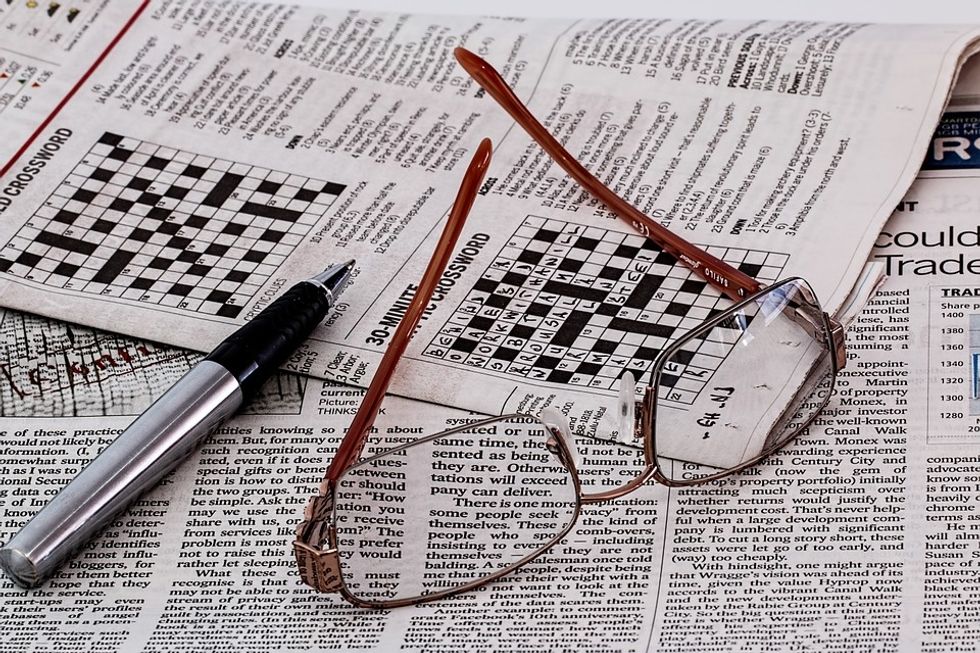Okay, unpopular opinion time. Crosswords are one of the greatest pastimes ever produced by mankind (second only to Sudoku). It is like a portable game of "Jeopardy" where the only person you are playing against is yourself! No buzzer, no stress. Just you and the wealth of random trivia flittering around in your head.
I have a soft spot for these puzzles (and "Jeopardy") because it is one of the few times when the font of useless trivia that passes for my memory is actually useful. It's also wonderful how the clues feed into each other, so even if you don't know it at first glance, it slowly reveals itself to you. There is nothing quite like that rush, the spike of adrenaline and euphoria that accompanies that moment when the little black and white boxes finally align in your head for that perfect "Eureka!" moment.
Also, they are a lovely bonding exercise. There is a certain camaraderie to sitting down with a couple of your friends and the Friday crossword, trying to pool together your collective brainpower to triumph over the clues set by The Creator. My personal favorite for shared endeavors is the "New York Times" daily crossword. "USA Today" is also pretty good, and significantly less pretentious at times! Not that pretentiousness is always a bad thing. It's all the more satisfactory to have solved a crossword where all the clues are ridiculously roundabout metaphors for anachronistic concepts.
Even when you are alone, though, crosswords can provide a few minutes or hours of calming entertainment. It's also no big deal if you don't know certain things. Looking up the answers after the fact is a time-honored tradition and a great way to brush up on interesting trivia that you can break out at your next social outing. It's also a surprisingly good way to find old music. A lot of the clues will reference (sometimes obscure) twentieth-century artists. It's how I learned about the Supremes. Diana Ross is absolutely amazing.
You don't even have to shell out cash for them! There are a bunch of free ones from both the Washington Post and Dictionary. Unlike the paper ones, they also have options where you can get some extra help with letters, like incorrect ones turning red when you select "check grid." Again, there's nothing wrong with getting a bit of help, and this in no way makes you stupid. It just means you don't know the particular trivia for that clue. Which is actually pretty great, because then you learn something new! Like I said, it's just you against the grid.
Let the puzzling begin.
















